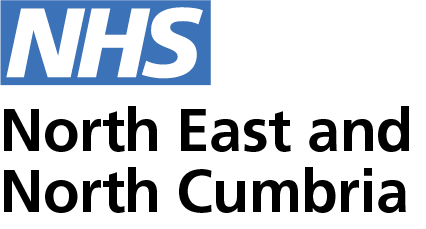Quick blood pressure checks can save lives
Doctors are urging people in the North East and North Cumbria to take control of their heart health by having a simple blood pressure check. Monitoring blood pressure through regular checks could prevent life-threatening conditions such as heart attacks and strokes.
The NHS in the North East and North Cumbria is supporting "Know Your Numbers" Week, a national campaign focused on raising awareness about the importance of blood pressure checks by launching a new pilot scheme in areas known to have low take up of blood pressure checks.
The new initiative will see blood pressure kiosks installed in six community centres across the region, providing an easy and convenient way for people to monitor their blood pressure and get vital help if needed.
Blood pressure kiosks in Hartlepool, Middlesborough and North Tyneside are funded by the NHS North East and North Cumbria Integrated Care Board (ICB), with North Tyneside Council funding one of the North Tyneside kiosks.
Kiosks can be found at:
- Hartlepool: Community Hub Central and Community Hub South
- Middlesbrough: Newport Community Hub and NUR Fitness
- North Tyneside: Wallsend Customer First Centre and North Shields Customer First Centre
Community Champions have also been trained at each centre to assist with using the kiosks, providing lifestyle advice, and guiding individuals on next steps if their readings are high. Free, returnable home blood pressure monitoring kits are also available for those needing further monitoring.
Dr Saira Malik, GP in Sunderland and clinical lead for Cardiovascular Disease, North East and North Cumbria (ICB), said: "High blood pressure, often called the 'silent killer,' can go unnoticed because it has no obvious symptoms. This new pilot is all about making it easier for people in our communities to take that crucial step towards better heart health.
We're focusing on areas with a higher risk of undiagnosed high blood pressure, as we know if high blood pressure is diagnosed early by a simple check, it can help save lives."
Along with the new kiosks, many local pharmacies also offer free blood pressure checks or people can contact their GP surgery.
High blood pressure, also known as hypertension, is the world's leading cause of death and disability and cardiovascular disease. However, with the right support and care, it is both preventable and treatable.
Managing high blood pressure often involves simple lifestyle changes such as reducing salt and high-fat food intake, maintaining a healthy BMI, exercising, smoking cessation, and limiting alcohol use to 14 units weekly for both men and women. Medications can also effectively control blood pressure, but if left untreated, it can lead to heart attacks, heart failure, strokes, and less commonly known, kidney damage, visual loss, and memory problems.
High blood pressure is considered to be from 140/90mmHg (or an average of 135/85mmHg at home) – or 150/90mmHg (or an average of 145/85mmHg at home) if you're over the age of 80.
Around 5.5 million people in England have undiagnosed hypertension and don’t know they are at risk. The only way to check is by having your blood pressure measured.
The NHS recommends that adults over 40 have their blood pressure checked at least once every five years - and ideally every year if your blood pressure is borderline or you have any lifestyle risk factors.
Further information about high blood pressure is available on the NHS website.

